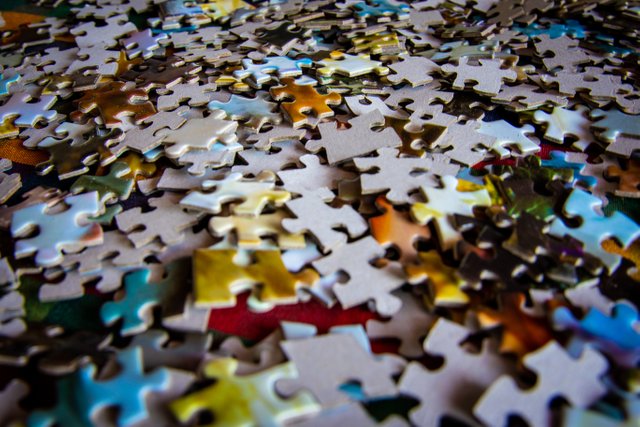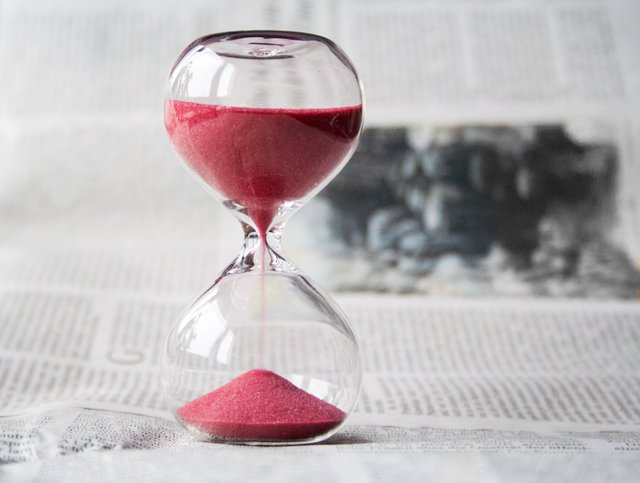Idea#19 An idea of ‘better’ decision-making
For a couple of years now I have been interested in making ‘better’ decisions. The problem that lately has been arising is that I’m not sure what better is anymore. I think everyone has a general idea when it comes to making the ‘right’ decisions, but what is a ‘right’ decision? Each of us thinks different about what makes a decision ‘right’. I think deep down we share one value and that’s happiness. Each of us thinks of the ‘right’ decision as the decision that makes us the happiest (now or later.) But what is happiness and how do people perceive it?
Perception of happiness
Now I do think that our perception of happiness is so, so, so important. I want to make a difference between two types of happiness, long-term happiness and short-term happiness. Now long-term happiness comes from taking care of ourselves, our friends and having a purpose in life to work on. Short-term happiness is often more extreme, but almost always has a negative side effect. This are things like drugs, fast-food and sugar. Short-term happiness is I believe an essential in life, but it does have a negative side effect that often means a decrease in health. Short-term happiness therefor decreases our long-term happiness often (not always), because long-term happiness comes from taking care of ourselves and short-term happiness decreases how well we take care of ourselves. Now I do believe that short-term happiness can be important and is a way of taking care of ourselves since having moments of short moments of happiness can be useful.
Different Roads

The calculation each of us makes is the amount of happiness that we’ll have over time. In this calculation, the perception of time and happiness are very important. Some people believe that we should enjoy right now (short-term happiness.) The well-known phrase ‘Carpe diem’ is an example of enjoying right now. So is the more modern version of this, ‘Yolo’ (You only live once.) Now, this is only one side of the spectrum. Other people believe that we should sacrifice earlier in our lives to be successful or more happy in the future (long-term happiness.) The ‘more’ is very important here, people do believe that sacrificing now is like a ‘happiness investment’. This means that they think by investing their happiness now, they can get a bigger return later. Let me illustrate these to extremes of the spectrum.
We often see people who want to succeed in life and want to be successful. For them, this can mean to be rich, famous or just being very good at their jobs (what often means that they are still rich.) These people often believe that by working hard in their early years (18 till 28) they can achieve an advantage on life. This advantage will give them more happiness in the future, so the present isn’t that important for them. The advantage is, in this case, the return on their investment. Each and every one who lives for the future has a way of reasoning that’s similar to the one I mentioned. The basic belief that is underlined by this is the fact that they all think that choosing for less now means more later. The problem that I see with this way of life, is what you invest in. Just sacrificing happiness and working hard doesn’t mean you’ll be happier in the future. It really depends on what you invest it in and how you do it.
On the other side of the spectrum are the people who think in the ‘carpe diem’ terms. Translated to ‘life by the day’. This are people who (in the most extreme cases) don’t think of the future at all. They don’t plan ahead and just make decisions by the day. Their idea is often that they don’t have control over their lives or/and believe they won’t live for long and/or believe that the future won’t be better than the present. People who are slightly more to this side of the spectrum can still study, have jobs etc. But in their free time, they won’t do extra work for the future. They will often have an extreme social life and/or have a lot of hobby’s that don’t really connect or lead anywhere. If I would describe their purpose, it would be quick joy (short-term happiness moments.) Now the problem I see here isn’t that they won’t have ‘more’ happiness in the future. These people often enjoy a lot and have a lot of friends through their lives. The problem I see is that it works for some people, but that it also doesn’t work for a lot of people. I feel like this is kind of a random way of living, causing random outcomes. So yes it can work, but because they don’t really think about things. Their choices end up randomly influencing them and them talking it right to themselves afterwards.
Both sides can really learn from each other. Enjoying now and investing in your friends is really important, but investing in your future by sacrificing some of your time now for a better future is great as well. I believe that everyone is somewhere on the spectrum between the two extremes and none of the extremes is right or wrong per definition. Saying this, I do need to at a ‘but’ because I think a lot of people tend to see their way as the ‘right’ way and I believe that this inherently means it’s the wrong way. If you already think at any point in your life that you know what you’re doing, you’re probably wrong. Since the chance of you nailing the formula of happiness that everybody ever has been looking for, isn’t that big (this includes me, I don’t think I’m right. I just think I’m less wrong. Meaning that I admit of being wrong and that someone at some point will correct me and improve my way of thinking.)
The problem with self-reflection

Cognitive dissonance can explain why we all think that we know what we’re doing. Cognitive Dissonance occurs whenever we make a decision between two or more options. Cognitive dissonance is a feeling of discomfort and results in telling yourself reasons why you picked the option that you picked and why you didn’t pick the other option(s). This makes any decision you made look a lot better than it originally did. That’s why it can be difficult to reflect a 100% objectively about past choices. Cognitive Dissonance makes us think that we always made the right decision(s) or makes us talk it right to ourselves. (This can also be the reason that people who live according to a lot of short-term happiness keep doing it. They keep talking it right to themselves, causing them never to change.)
An example of Cognitive Dissonance: I stayed up two hours longer than I should have yesterday. I was having fun with my friends playing games. Now I feel pretty tired while writing this article, but I keep telling myself it was worth it. I enjoyed my time, it was fun with my friends, all reasonable reasons to think it was a good decision. The truth is really that is still shouldn’t have done it. There are going to be many moments of joy with my friends. I could just have told them I had to get up early. They would have understood, and we would’ve hung out again in a view days, but I didn’t and now I’m talking it right to myself because of Cognitive Dissonance. It just makes me feel bad to think that I made the wrong decision.
I’m not saying this is a bad thing, I think it’s a great thing! It helps us to be happy about ourselves. The problem is that at the same time it makes reflecting on ourselves realistically very hard, and that makes improving hard as well. So it’s good to have it, but at the same time, it’s good to be aware of it. At times, we need to break it and have a realistic view of ourselves (so the next time we hang out with our friends we will go home at 12.)
Values

Now, of course, I know that making decisions isn’t that simple. It’s not just an ‘one factor fit all model’. There are a lot of building blocks that are behind every decision, just as there are a lot of factors that make us happy. This comes down to what we value in life. What we value in life changes the way we perceive happiness. What we value depends on our experiences and of our perception on what makes us happy. This can be different for everyone since we all have been raised differently and had different experiences in our lives. That’s why it’s important to be aware in our decision-making of what we value. If you value present joy over health, then smoking isn’t necessarily a bad choice. The problem isn’t that we don’t know our values, but we often don’t stand still to think of them whenever we have to make a decision. Standing still at every decision would again be too much. If we stand still at every decision, we would do groceries for hours. This would make grocery shopping a hell.
When do we have to think about our values?

Now, whenever we make a decision we often can be wrong. This means that being wrong wouldn’t necessarily cause a big decrease in our happiness or at least not that bad of a decrease and/or missed opportunity of increased happiness. If we buy 20 euro more expensive sweater or not really doesn’t matter that much. We don’t have to think about all our values when we buy it.
When it comes to repetitive behaviour or big choices, our values are important. If you buy 20 euros more expensive sweater every month, that’s 240 euro’s more every year. Now, this can be worth it, depending on what you value more. If you value having good clothes and/or brands a lot, then it might make you happier. The question is, do you value it more over being healthy. For the same amount of money, you could have gone to the gym every month. Or maybe you did it because you wanted to look good, then you could also have gone to the gym. It just really depends on what you value.
The general rule when it comes to decision-making is, the more accurate you want to be, the more effort you have to put in (with the effort I mean thinking, you need to think more and reflect more of what your values are.) The more effort, the more you’ll be aware of your values causing you to make better decisions for you. Now I don’t want to say too much about values since they are different for everyone. So let’s quickly go back to happiness, because this is something we all do share.
Bigger picture

It’s important in every decision to see how it connects to your ‘bigger picture’. What I mean with this is the total amount of happiness in your lifespan (yes, you didn’t see that one coming, did you?) I know this isn’t a 1,2,3 answer you can give me, but you’ll see the importance of this later in the article.
I personally have a bigger picture that I believe in. My personal life motto is:” It’s worth it.” It means to me that everything I do is worth it, even though I can make mistakes. As long as I learn from every choice, it’s fine because if I learn, my total happiness will increase. This causes me often to just make quick decisions since I don’t want to stand still for everything to long. I’m just going to do stuff and learn from it later on. To make these decisions quickly I have thought of a formula I like to use. The formula is as follows:
The total time I estimate I will have in my life if I live according to my current lifestyle, times every single moment of happiness I will have over these years. Better shown as Estimated lifespan X moments of happiness in time. For me, this gives a broad overview of how okay I am with the way I live. You might think that this will cause me to only go for long-term happiness. Now I do often go for long-term happiness since these are often choices that cause me to live longer and have more joy in the long-run. Now this will increase the total amount of happiness. Let me show you how this works in numbers, to make it visible.
Calculating happiness?

Let’s say we estimate our lifespan to be a 100 years, and we have an average happiness of 7 (on a scale from 1-10.) This means our total happiness over time is 700. Now let’s say we just started studying, and we started to go out more and more, giving us a lot of happiness in the short-term and also giving us some long-term happiness because we bond very well with our friends. This causes us to increase our overall happiness with 1 to an average of 8 over the years. This means a total happiness 720. So we gained a total happiness in our lives, by going out more. We live shorter, but life so much more happy that our total happiness increases.
Now it’s not like this is an exact science. It depends on how much you estimate a certain decision has an impact on your total happiness over the years. I just divided this in three factors: Short-term happiness, long-term happiness and time. All you’re values are included into these factors. Now you can start thinking of how you’re current lifestyle fits into this model and what total happiness you estimate to get. After you’ve done this, you can start thinking on how you want to change your lifestyle to get a better-estimated outcome for yourself.
Now as I said, there is a place for short-term happiness. I believe that short-term happiness is a quick fix for creating bonds between people. This is why people do drugs together (including drinking) and like eating fast food together. The dopamine (a hormone that makes you feel good) that gets released in your body because of these ‘things’ (sugar, drugs, fastfood) creates a bond with the person you’re with. The brain probably connects the good feeling to the person you’re with and that creates a bond with that person. Used at the right moments, this can be very valuable to a certain degree. I’m not saying you should do drugs (or anything illegal.) I’m saying that drinking a couple of beers with your friends or with new people will help you to create a bond with them. This then can cause long-term friends and long-term friends can cause long-term happiness since we all need friends.
Personal beliefs
I do take into consideration my belief that the longer you live, the longer you live. With this, I mean that the longer you live, the probability of better technology increases and this increases again your lifespan. I also believe that this increase in technology will make my life easier and will increase my happiness. So in total, I do believe that living longer will increase the total amount of happiness over the years. With this said, I still like going to party’s and enjoying. I do this regularly, but always with my friends. So in a way, I always try to aim for long-term happiness. With a healthy acceptation for my sugar addiction (that I really should fix.) Overall I’m a very happy person, so it works for me. I hope you can learn from me and if you leave a comment I can learn from you too. Like I said, I don’t think I’m right, I just think I’m on the right track of being less wrong.
I hope you liked the article if you did make sure to check out my other articles on social media or at Obooij.com. I bring out three articles every week, so make sure to follow me.
Feedback is always welcome, so leave a comment, like or share the article, so I can see what you thought of it!
You have a minor misspelling in the following sentence:
It should be therefore instead of therefor.Congratulations @obooyblogging! You have completed the following achievement on the Steem blockchain and have been rewarded with new badge(s) :
Click here to view your Board of Honor
If you no longer want to receive notifications, reply to this comment with the word
STOPDo not miss the last post from @steemitboard: